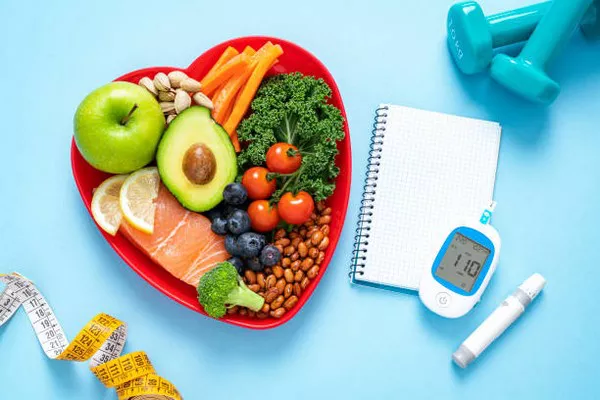While there is no official Ozempic diet, avoiding certain foods can help minimize potential negative side effects when taking this medication. Ozempic, a brand name for semaglutide, is an FDA-approved prescription medication for treating type 2 diabetes. It has gained popularity as a weight loss aid due to its effects on appetite and digestion.
Dr. Charlie Seltzer, a board-certified physician in obesity and internal medicine, explains that Ozempic works by decreasing appetite and prolonging the time it takes for food to pass through the gastrointestinal (GI) tract. This mechanism can aid in calorie reduction and promote a feeling of fullness, ultimately leading to weight loss. However, the types of foods consumed can significantly impact how individuals experience Ozempic.
Foods to Avoid When Taking Ozempic
Added Sugar Ozempic is primarily designed to regulate blood sugar levels, making it essential to avoid foods and drinks high in added sugars, which can counteract its effects. Common sources of added sugars include:
- Sweetened yogurts
- Flavored milk
- Energy drinks
- Cookies and candy
- Soda and sweet tea
- Ice cream
- Alcohol
Alcohol Alcohol is known to be pro-inflammatory, potentially leading to inflammation in the digestive tract. Given that common side effects of Ozempic include various forms of GI discomfort, consuming alcohol may exacerbate these issues.
High-Fat Foods Foods high in fat can provoke GI symptoms independently. Since Ozempic slows down the digestive process, fatty foods remain in the system longer, increasing the likelihood of discomfort. High-fat foods to limit include:
- Fried and greasy foods
- Full-fat dairy products
Note: Healthy fats found in foods like avocados and oily fish can be consumed in moderation.
Starchy Vegetables Although vegetables are vital for any weight loss plan, starchy varieties can elevate blood sugar levels due to their high glycemic index. It is advisable to consume these foods less frequently than non-starchy vegetables. Starchy vegetables include:
- Corn
- Potatoes
- Peas
- Beets
- Carrots
Ultra-Processed Foods Ultra-processed foods often contain added ingredients, preservatives, and artificial additives. These foods tend to have higher levels of sugars and unhealthy fats, making them less ideal for those on Ozempic. Examples of ultra-processed foods include:
- Potato chips
- Sugary cereals
- Processed meats like lunch meats and hot dogs
- Instant meals and frozen pizzas
Common Side Effects of Taking Ozempic
Dr. Seltzer notes that common side effects of semaglutide include nausea, vomiting, constipation, diarrhea, and reflux. Although there’s no surefire way to avoid these side effects, steering clear of specific foods may help mitigate their severity.
How to Eat When Taking Ozempic
While there’s no formal Ozempic diet, adopting mindful eating habits can enhance weight loss efforts. Clinical weight loss practitioner Pete Nastasi emphasizes that a balanced diet is crucial for maintaining weight loss after discontinuing Ozempic. He suggests consuming smaller, more frequent meals that emphasize whole foods, such as:
- Lean proteins
- Fresh vegetables
- Healthy fats
Timing and Meal Planning
Nastasi recommends focusing on consistency rather than strict meal timing. Consistently timed meals can help regulate blood sugar and minimize side effects. Additionally, staying hydrated is essential.
Best Foods to Eat
Nastasi advises prioritizing whole foods in the diet. Fiber-rich foods are especially beneficial, as they promote satiety and aid digestion. Some examples of wholesome food options include:
- Berries, bananas, and citrus fruits
- Whole grains like brown rice, quinoa, and rolled oats
- Dark leafy greens such as spinach, kale, and collard greens
- Nuts like walnuts, almonds, and pistachios
- Legumes including peas, chickpeas, and black beans
Conclusion
While there is no official Ozempic diet, making informed food choices can play a significant role in enhancing the effectiveness of the medication and minimizing side effects. It is advisable to consult healthcare professionals for personalized dietary recommendations while taking Ozempic or any weight loss medication.
Ozempic FAQs
Is There an Ozempic Diet?
While there isn’t an official diet, focusing on a well-balanced, whole-foods diet may help manage side effects and support weight loss.
Is Ozempic Better than Weight Loss Supplements?
Ozempic is a prescription medication with proven effectiveness through clinical trials, while weight loss supplements often lack robust scientific data.
Does Ozempic Suppress Appetite?
Yes, Ozempic can reduce appetite and enhance satiety, but it should not be confused with over-the-counter appetite suppressants.
Can I Eat Eggs When Taking Ozempic?
Yes, eggs are a good source of protein and healthy fats and can fit into a balanced diet.
Can I Eat Sweets When Taking Ozempic?
While no food is strictly off-limits, consuming added sugars can increase the risk of side effects and counteract the medication’s blood sugar regulation.
Related Topic:


